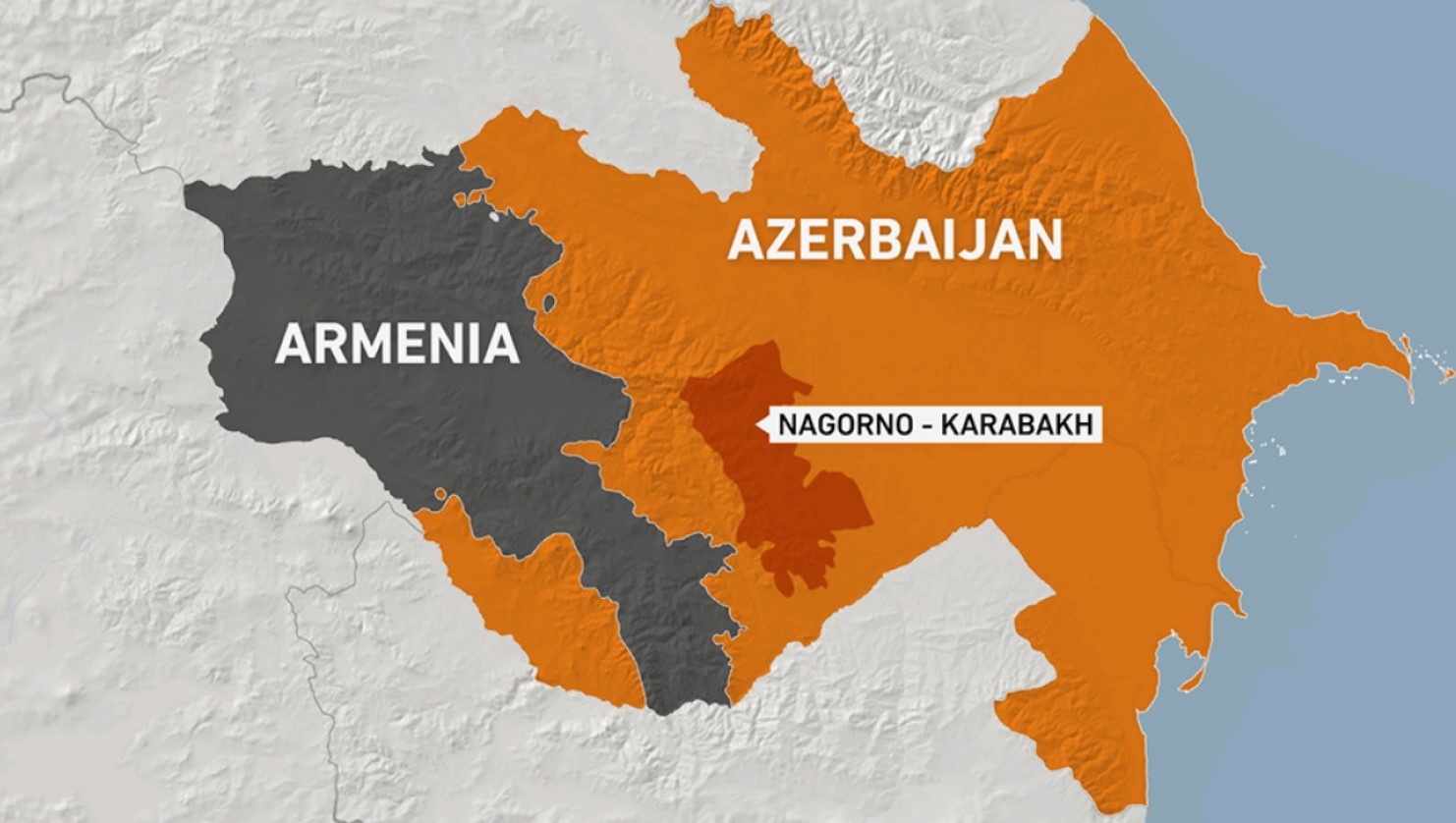A public tiff in Moscow between the leaders of Armenia and Azerbaijan, traditional adversaries, highlighted the differences between the two countries, but at the same time offered hope that there is room for compromise and agreement. The leaders expressed their commitment to normalizing relations after mutually recognizing each other’s territorial integrity. The talks took place in Moscow, where Armenian Prime Minister Nikol Pashinyan and Azerbaijani President Ilham Aliyev met individually with Russian President Vladimir Putin. The three leaders also engaged in joint negotiations to discuss the path towards establishing a more amicable relationship.
The negotiations took place in the aftermath of recent violent border clashes between the neighboring countries of Armenia and Azerbaijan. These two nations have been engaged in a protracted conflict spanning several decades, with the primary dispute revolving around the control of Nagorno-Karabakh, a region in Azerbaijan predominantly populated by Armenians.
Armenia is ready to recognize Azerbaijan’s territorial integrity which includes Nagorno Karabakh, but the rights and security of the Armenians of Nagorno Karabakh must be discussed through dialogue, Pashinyan has said.
As peace talks between Armenia and Azerbaijan continue, Baku has opened a checkpoint on the Lachin corridor, the sole road connecting Armenia to the Nagorno-Karabakh enclave, raising fears of a new surge in fighting, according to the International Crisis Group organization.
The region of Nagorno-Karabakh, which has been a source of conflict between Armenia and Azerbaijan, is currently facing an increasing risk of major violence. This mountainous enclave has witnessed two wars since the dissolution of the Soviet Union. Recently, on April 23, Baku took the step of opening a checkpoint on the Lachin corridor, a highway that runs through Azerbaijani territory, serving as the sole road connecting Armenia to the Armenian-populated areas of Nagorno-Karabakh. Consequently, clashes between Azerbaijani and Armenian forces occurred in May, resulting in the loss of at least three lives. These clashes have emerged two and a half years after a brutal six-week war that led to the expulsion of Armenian forces from Nagorno-Karabakh and the surrounding Azerbaijani regions. As a consequence, ethnic Armenian residents were compelled to flee to Armenia or the part of Nagorno-Karabakh under the protection of Russian peacekeeping forces deployed after the war, in accordance with a trilateral armistice signed by Baku, Yerevan, and Moscow. Prior to these recent developments, the area had been under Armenian control for nearly three decades following the full-scale war between the two countries in the early 1990s.
Nagorno-Karabakh is a region located in the South Caucasus, historically inhabited predominantly by ethnic Armenians. The conflict surrounding Nagorno-Karabakh is rooted in historical, territorial, and ethnic complexities, with both Armenia and Azerbaijan claiming rightful control over the region.
The origins of the conflict can be traced back to the early 20th century when Nagorno-Karabakh, along with the surrounding territories, became part of the Azerbaijan Soviet Socialist Republic within the Soviet Union. Despite its predominantly Armenian population, Nagorno-Karabakh’s autonomous status within Azerbaijan was a source of discontent among the local Armenian population.
In the late 1980s, with the weakening of the Soviet Union and the rise of nationalist sentiments, tensions escalated between Armenians and Azerbaijanis. In 1988, the local Armenian population in Nagorno-Karabakh initiated peaceful protests, demanding the transfer of the region to Armenia. This led to violent interethnic clashes and an eventual full-scale war between Armenia and Azerbaijan in 1991, following both countries’ declarations of independence from the Soviet Union.
The war lasted until 1994 and resulted in significant casualties and displacement on both sides. Armenia gained control over Nagorno-Karabakh, as well as several surrounding Azerbaijani territories. However, the conflict remained unresolved, with periodic escalations and border skirmishes occurring over the years.
Efforts to find a peaceful solution to the Nagorno-Karabakh conflict have been made through various mediation platforms, including the OSCE Minsk Group, co-chaired by Russia, the United States, and France. However, these negotiations have faced numerous obstacles, primarily due to the conflicting territorial claims and the deep-rooted animosity between the two nations. Because of this, residents of the area have been caught up in the conflict and are reduced to pawns in the greater debate of what belongs to whom.
In 2020, the conflict reignited with renewed intensity, resulting in a six-week war between Armenia and Azerbaijan. This war witnessed significant advancements in military technology and tactics, causing substantial loss of life and displacement. Ultimately, a ceasefire agreement brokered by Russia was reached, which allowed Azerbaijan to regain control over several territories surrounding Nagorno-Karabakh that had been under Armenian control since the previous conflict.
The future of Nagorno-Karabakh and its residents remains uncertain, with many key issues yet to be resolved, including the status of the region, the return of displaced persons, and the establishment of lasting peace. The conflict has had profound social, economic, and humanitarian consequences for both Armenia and Azerbaijan, as well as for the people living in Nagorno-Karabakh. The international community continues to urge the parties involved to find a negotiated settlement that respects the rights and aspirations of all affected populations and ensures lasting peace in the region.
Image: Al Jazeera
Become a Patron!
Or support us at SubscribeStar
Donate cryptocurrency HERE
Subscribe to Activist Post for truth, peace, and freedom news. Follow us on SoMee, Telegram, HIVE, Flote, Minds, MeWe, Twitter, Gab, What Really Happened and GETTR.
Provide, Protect and Profit from what’s coming! Get a free issue of Counter Markets today.


Be the first to comment on "Beset by Crisis, Nagorno-Karabakh Residents in Limbo"